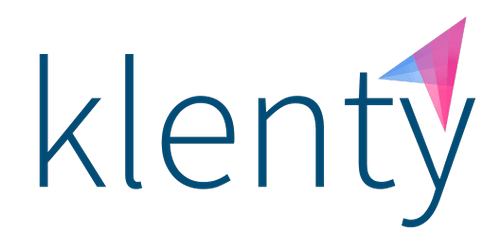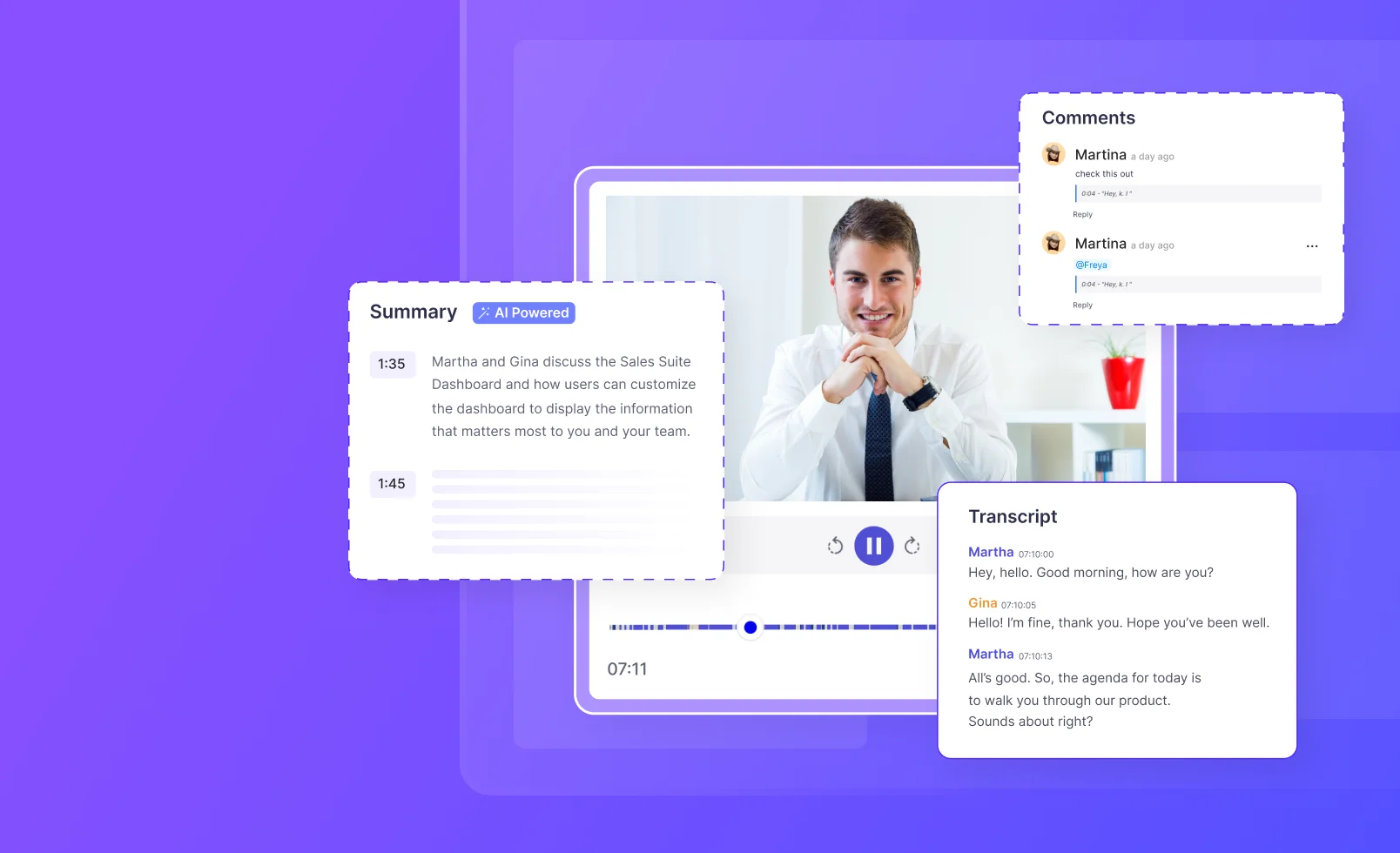Sales calls contain bucketloads of information about prospect pains and concerns that help in moving deals forward.
But it’s impossible to remember everything that transpired on the call without any record. That’s why sales teams are encouraged to take notes during calls.
Even though taking notes may seem like you’re back in school, there are many advantages to it.
We’ve collated 11 reasons why note-taking is crucial during a sales call.
11 Ways Automatic Note-Taking Improves Deal Win-Rates
Keeps You Focused on Calls
Taking notes forces reps to listen actively during calls. It eliminates distractions as reps have to engage with prospects, look out for key details, and write them down.
Helps You Prepare For The Next Call
Crucial information like who’s part of the buying committee, the deal size, team size, key factors driving prospects to purchase are essential to keep in mind for your next call. Especially in early-stage discussions, these details are important to give your prospects a personalized buying experience. Making notes reduces the risk of forgetting them.
Helps You Remember Important Customer Details
Prospects may mention a few things offhand, but they might be more important than you realize. When you enter further down the funnel, every small detail can make or break a deal. This includes throwaway details like the prospect’s availability or significant pricing negotiations.
Identify Winning Patterns Across Deals
Because all reps have a record of what happened during their sales calls, your team can identify winning behaviors and avoid practices that hinder the deal's progress.
Informs Customer-Facing Teams About Prospect Needs
Having a record of what transpired on calls allows you to inform Product about feature requests, Marketing about competitor mentions, and Finance about pricing negotiations. Otherwise, you’ll rely on your memory, and these details may slip through.
Set Clear Next Steps
Reps can break down larger objectives into smaller plans of action. For example, if the next step is to provide the prospect with a proposal, reps can identify what should be included in it, who’s going to send it, and the deadline. This way, you and your prospect are on the same page about the next course of action, leaving no room for confusion.
Identify Common Objections
While noting meeting details, reps also identify questions prospects may ask on call. Over a period of time, it’s easier to identify common objections you come across often and prepare to handle them better next time.
Measure Progress On Deals
Knowing what transpired on the call helps you know where exactly the deal is and if you should pursue the deal or move on to a more promising deal.
Facilitates Handoff Between Teams
Clear notes on the deal's status with conversation history give context to all the teams that handle your buyer. This way, no conversation history is lost.
Keep CRM Updated With The Sales Process
Taking notes during calls helps you keep a clean and updated CRM, as you can enter all the details as soon as you're done with the meeting.
The Challenge In Note-Taking
Most sales teams take notes manually. However, this comes with its own set of challenges:
- Reps must balance note-taking with being fully present on calls, inevitably compromising on both.
- Hasty note-taking leads to illegible or incomplete notes.
- By trying to capture everything said on the call, reps drown in a pile of notes overload.
We Built Call IQ to Fix The Challenge of Manual Note-Taking
Call IQ by Klenty is a Conversation Intelligence Platform that joins your call, takes notes for you, and summarizes them post-call - so you can completely concentrate on the conversation with your prospect.
How Call IQ Helps Sales Reps Stay Focused On Selling
Before the call
Stay prepared for every call with detailed summaries of past calls. Remember critical details before joining calls.
During the call
Focus on prospects rather than getting distracted with note-taking. Observe buyer posture, tonality, disposition, and intent through active listening.
After the call
Revisit calls and reflect on your performance. Remember the next steps and questions asked by prospects. Discuss product gaps and customer needs with internal stakeholders. Keep CRM automatically updated with notes.
How Call IQ Helps You Become a High-Performance Seller
Transcripts
Call IQ transcribes all your calls or meetings within 5 minutes or less. Instead of listening to your call recordings all over again, you can skim through the call at a glance.
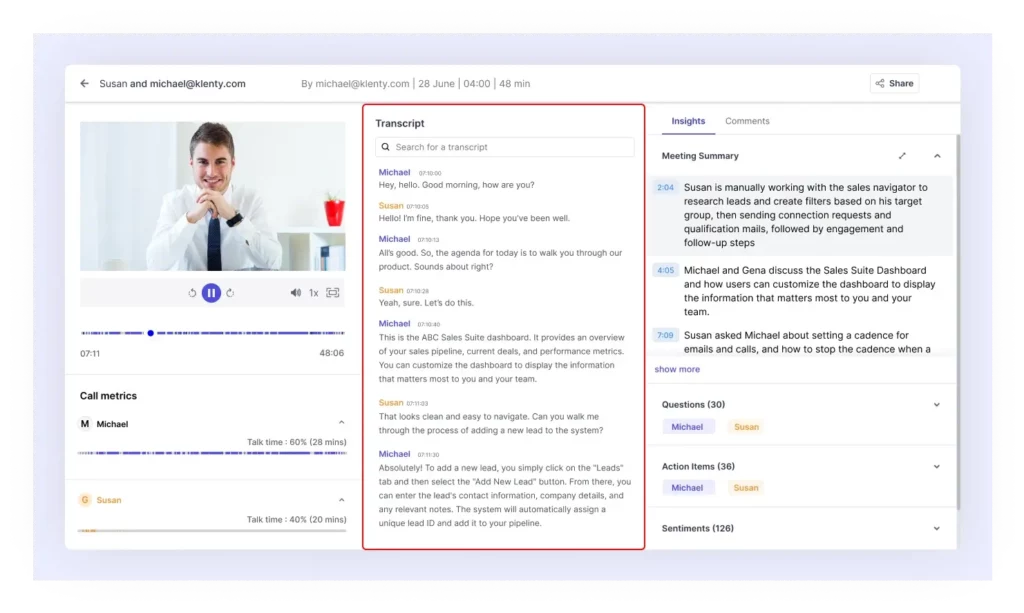
Spotlight Summaries
Call IQ highlights all important moments of the call, summarizing the conversation. This further saves you time, as you don’t have to review the entire transcript
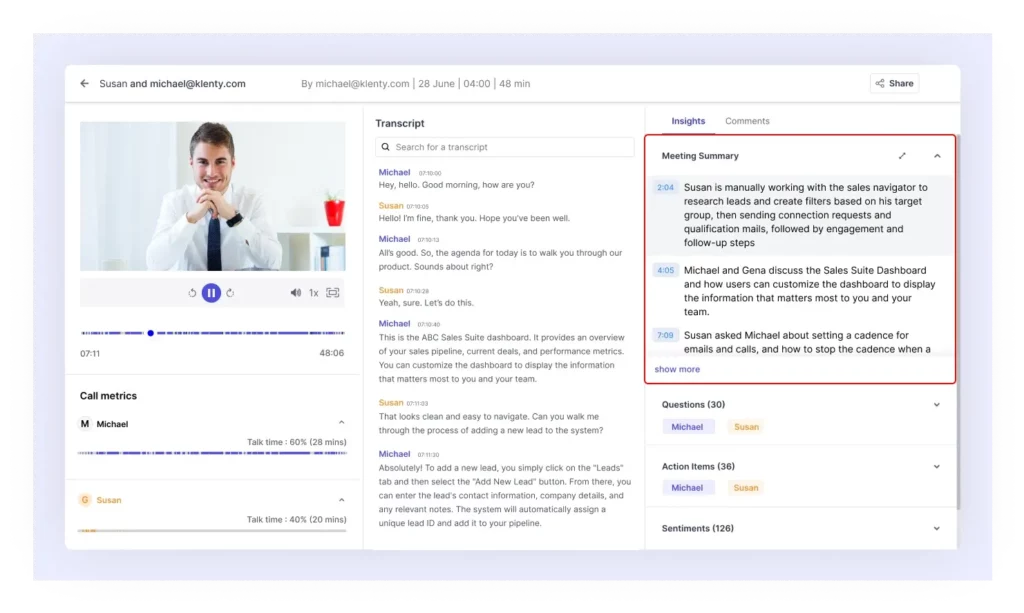
Action Items
Action Items is a collection of the next steps discussed during the call. This way, you’re clear on what needs to be done for all meetings and always follow up with context.
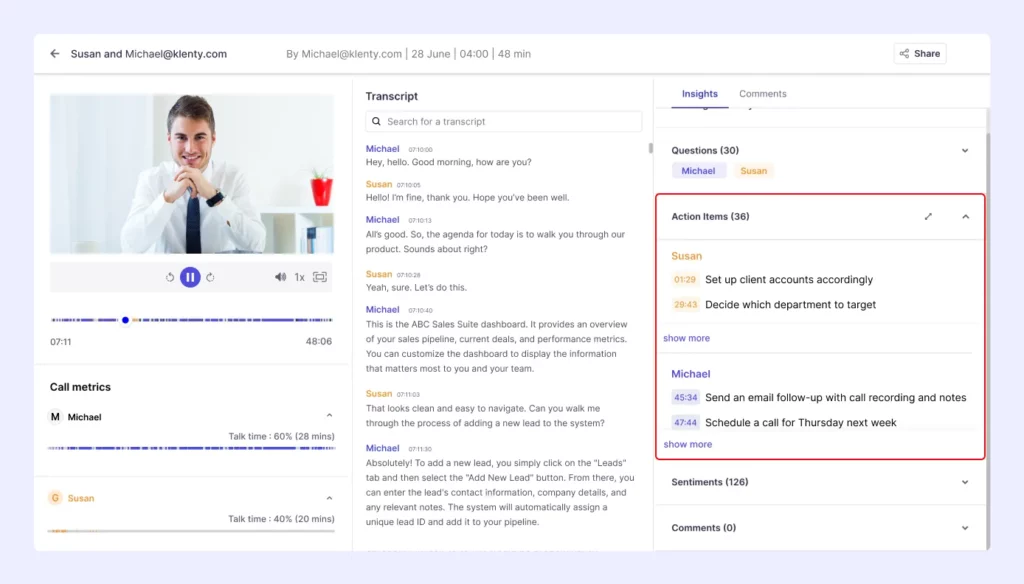
Questions Asked
This records all questions asked during the call - both by you and the prospect. Identify patterns and common questions/objections from prospects and be better prepared to handle them during your next call.
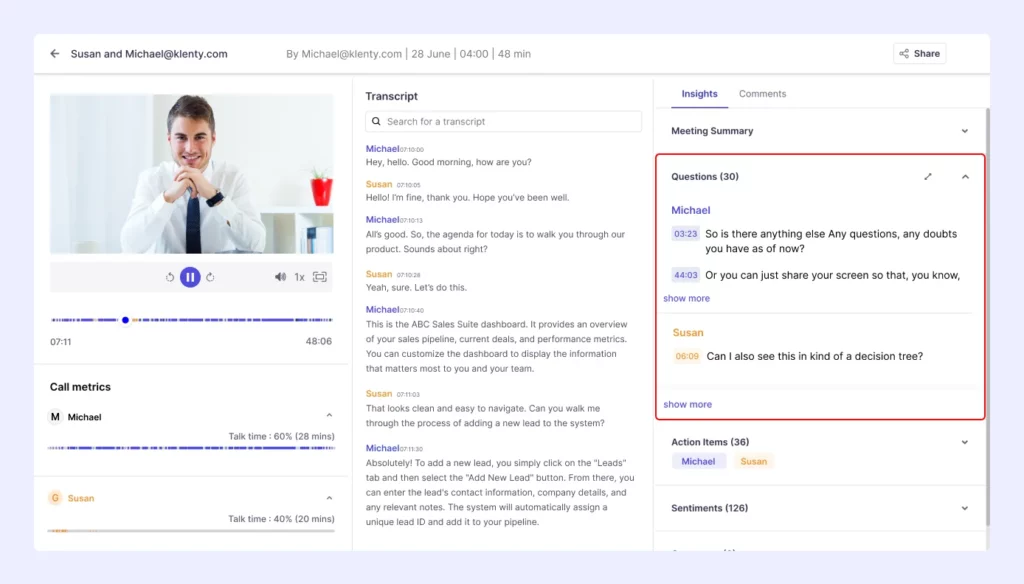
Sentiments
Knowing the sentiment of the call is important to know where the deal is headed. Call IQ collects all positive and negative sentiments throughout the call.
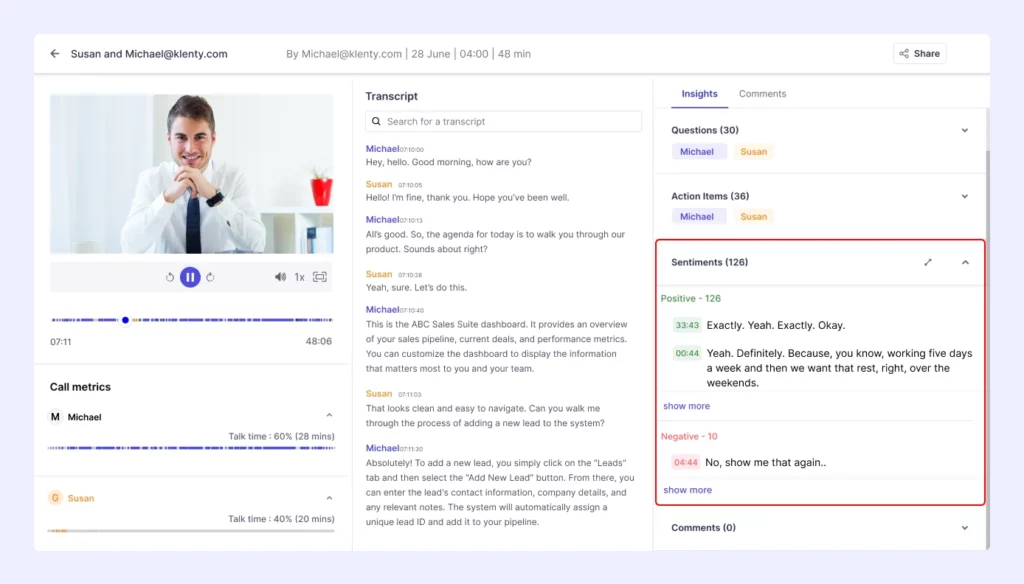
Comments and Mentions
Identify the part of the call you want your team members to focus on by tagging them with an "@.” Leave comments to let your team know your thoughts and takeaways from the call. Coach reps instantly.
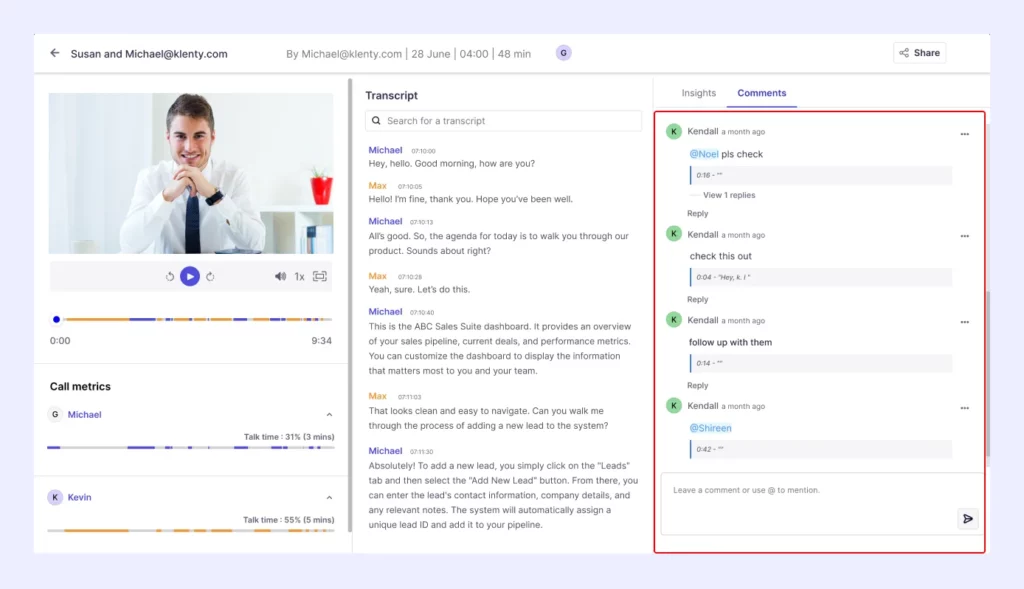
Integrates With Your CRM and Slack
Call IQ syncs all transcripts, summaries, and metrics to your favorite CRMs - Salesforce, Pipedrive, Zoho CRM, and HubSpot.
Additionally, you can also connect your Slack to Call IQ to get notified immediately after a call is transcribed.
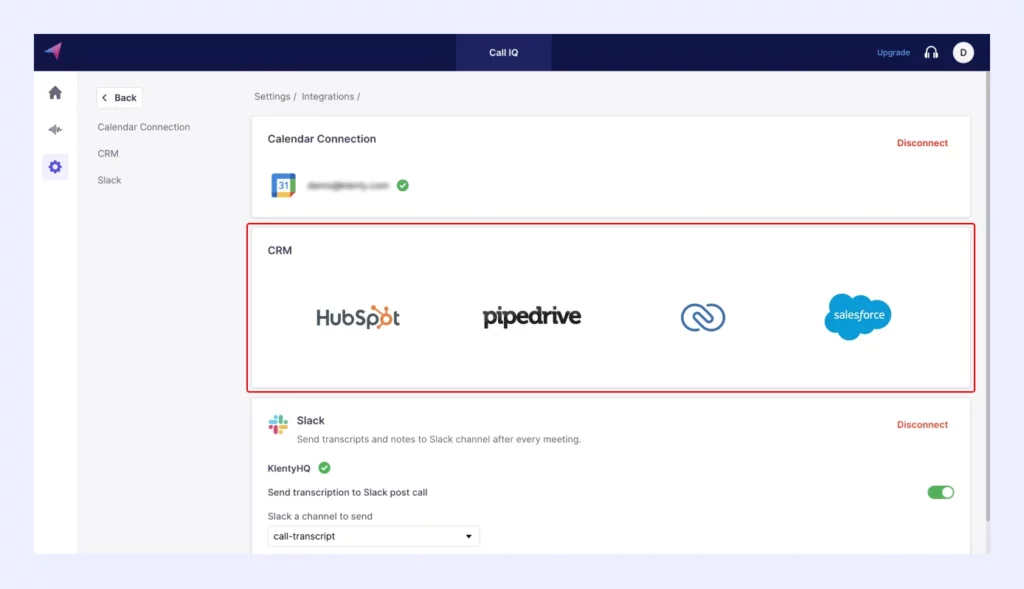
Final Thoughts
Note-taking during a sales call has many advantages, but doing so manually is tedious. With Call IQ, you can automate taking notes and focus on the prospect.
Book a demo of Call IQ today.
